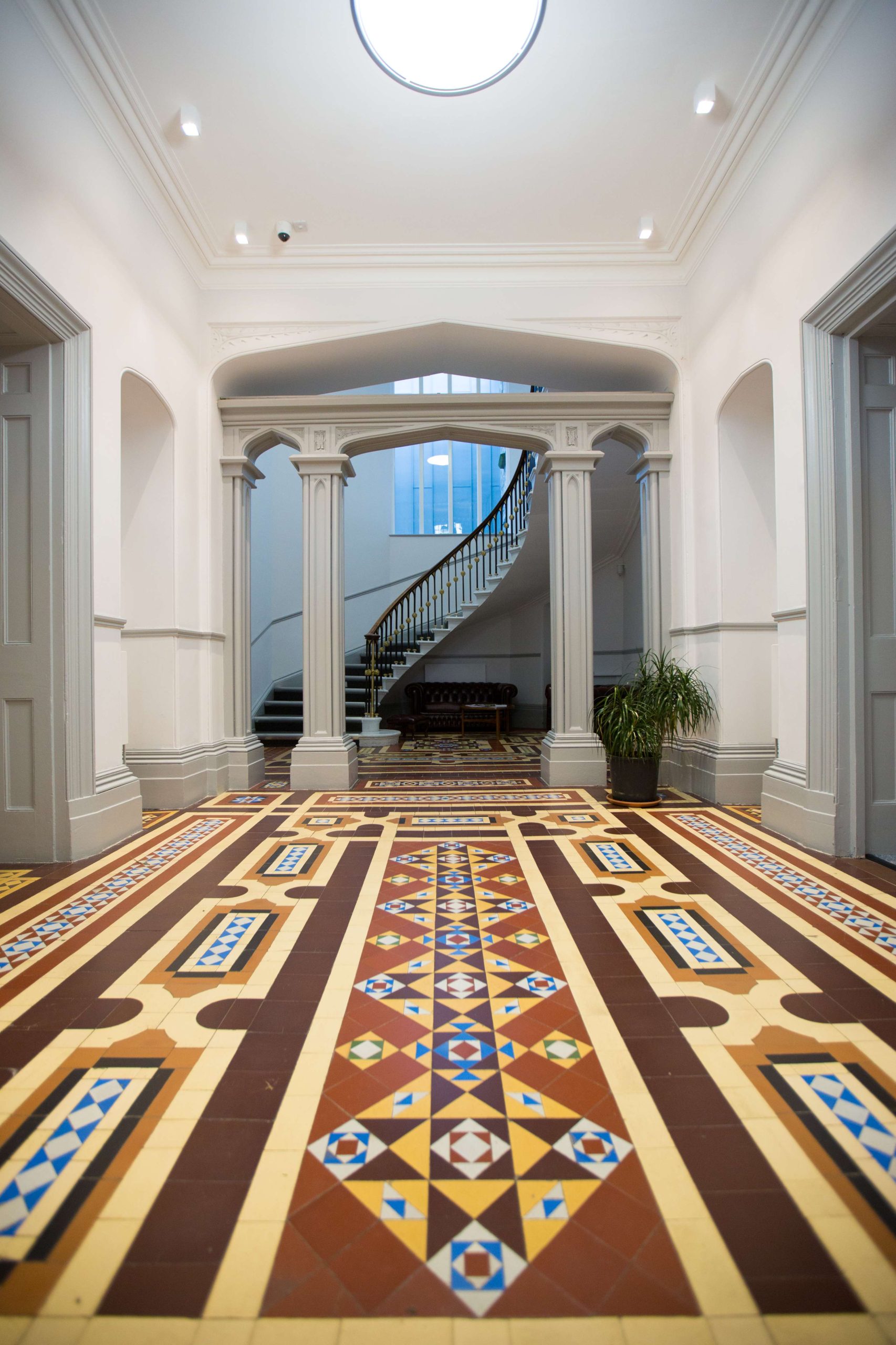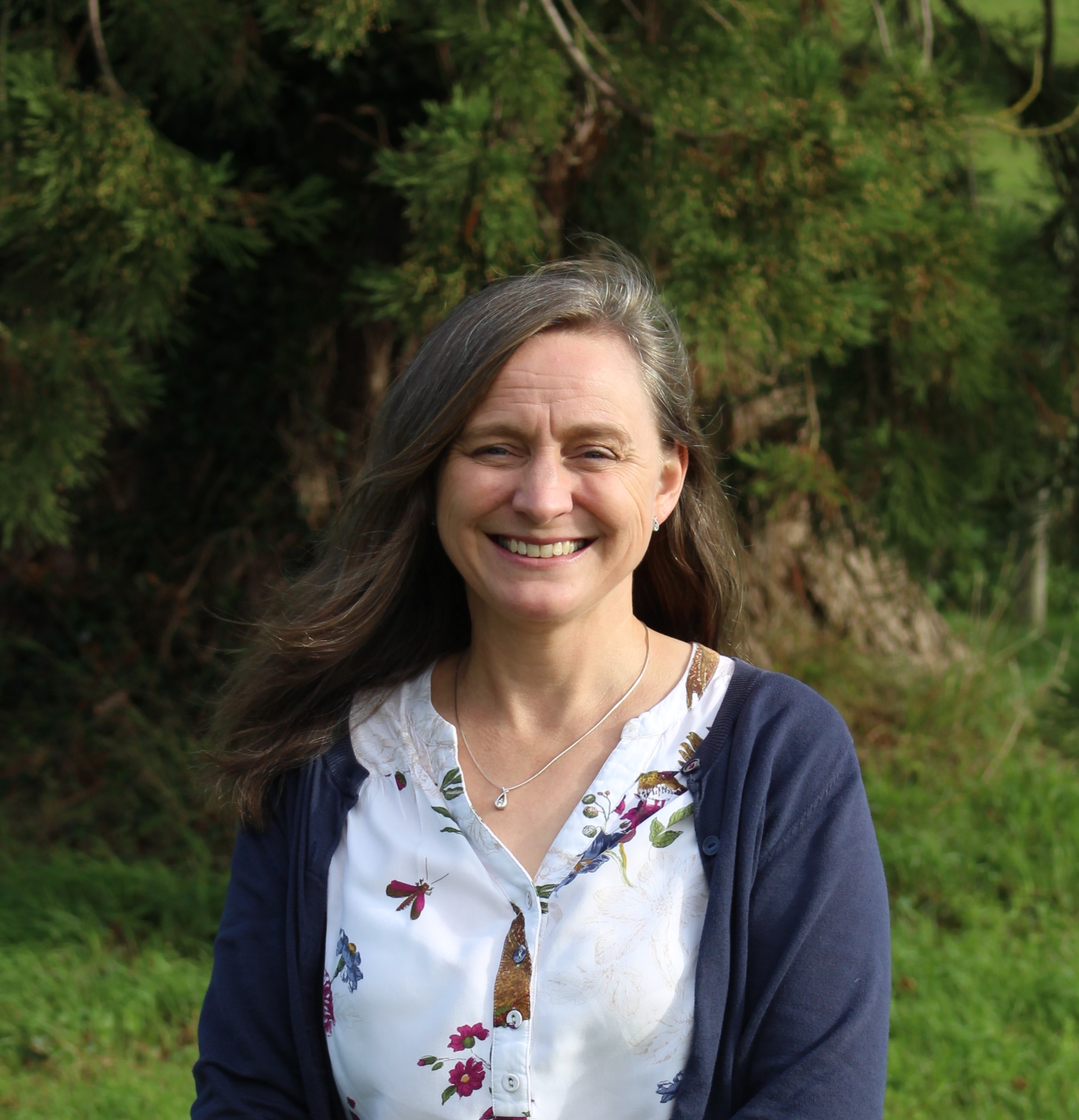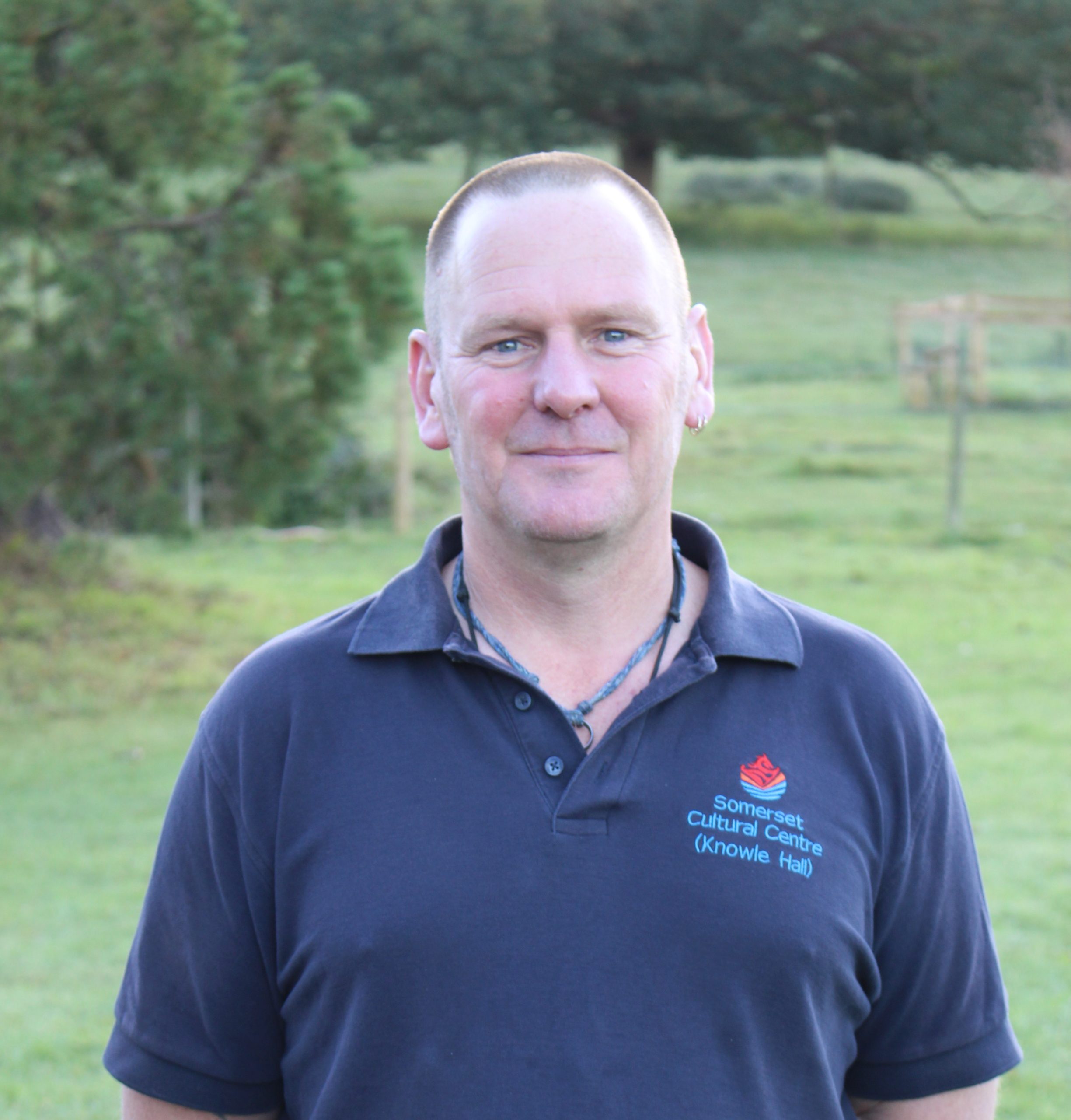Learning in an English country garden
Cheryl Hudson, Nigel Phillips and Jade Hume look at horticultural and environmental programmes being developed for visiting students from China in the heart of Somerset.
Knowle Hall
 Can there be anything more English than an English ‘country house’? Built in 1831 in the Somerset countryside to the southwest of Bristol, Knowle Hall is just such a house, with its gothic architecture, beautifully tiled reception area and magnificent stairway.
Can there be anything more English than an English ‘country house’? Built in 1831 in the Somerset countryside to the southwest of Bristol, Knowle Hall is just such a house, with its gothic architecture, beautifully tiled reception area and magnificent stairway.
After a long history as a private home, hotel, boys’ school and convalescence centre for children, it is now owned by the Hong Kong based YCYW International Education Foundation. Completely renovated in 2016 as the YCYW Somerset Cultural Centre, Knowle Hall now welcomes students in Years 6 and 8 from YCYW schools in mainland China for month-long English language and culture immersion programmes.
Sitting just off the M5 corridor, Knowle Hall is of course wonderfully situated for cultural visits to Bath, Bristol and Oxford. However, what makes it rather different as a centre for students from East Asia to visit is its growing environmental and ecological programme. This began with student visits to the Eden Project in nearby Cornwall and the conservation charity Wildwood Devon, but is now also being developed onsite.
The walled garden
The gardening and environmental science lessons the students engage in take place on the 23-acre site at Knowle Hall in grounds that boast woodland, grassland, a newly planted orchard, a pond, and the walled garden. Work began in the walled garden in 2018 to restore it from its disused state with the aim of engaging students in growing food crops that could supply the kitchen. However, the main emphasis is on developing a knowledge of basic plant husbandry so that students from densely populated urban areas in China can develop their understand of where their food comes from.

At first these sessions are normally met by students with some wariness (especially if’s raining!) but as they get involved, the children always seem to love a hands-on experience and seeing the results of their hard work when harvesting. Other plant husbandry the students are currently involved in include seed sowing, propagation,and tree planting as well as the redevelopment of walled garden itself. Of course those who know their English social history (or who have watched Downton Abbey) will also know that a ‘walled garden’ was essential for provisioning English country houses. YCYW students are therefore experiencing a cultural visit to England of a rather different – but very traditional – sort.
Our plans for the walled garden and gardening lessons aim to develop a range of different growing styles from permaculture, dig and no dig, hydroponics, conventional and non-conventional growing styles. The long-term aim is for students to understand how to better look after the soil and the environment for better food production.
Wildflower meadow

Other environmental projects that Knowle Hall are developing include our wildflower meadow which was started in 2018 when some wildflower seeds were acquired from a local meadow on the Quantock Hills. Lots of ground preparation took place to cut down the commercial grassland species and creating a less nutrient rich soil that is more suitable to growing wildflowers. Narrow paths were mown into the subsequent growth to allow the students easy access to study the wildflower and insect species in the area as part of their environmental science lessons. The environmental science lessons have a primary focus on getting the students outside with a hands-on learning approach backed up with research-based classroom study.
The pond

Another area used for study in environmental science lessons is the pond that was created in 2018 giving students an opportunity to learn about aquatic plants and animals. This was extremely successful as within a few months’ frogs, toads, newts, ducks, and a multitude of aquatic insects were easily found in and around the pond. Like the wildflower meadow, it’s a great focus for further study about different habitats and the wildlife that find them when they are there.
Beekeeping

Another area of great interest to staff and students is beekeeping at the Knowle Hall apiary. This was started in 2017 by current Premises and Grounds Manager Nigel Phillips and is now supported by an increasing number of staff who have recently also undertaken beekeeping training. The long-term aim of this project is to provide a viewing station alongside the apiary in which the students can engage in beekeeping lessons in a safe viewing environment. Lessons cover not only the practical aspects of beekeeping, but also about pollination and the importance of this to the environment not just at Knowle Hall but also globally. In using the honeybee as one example of a pollinator students can better understand the role of insects within the environment as an additional part of their horticulture and environmental science lessons.
Exciting environmental future
What is noticeable about these projects is how quickly they bring everyone together while providing strong areas of common interest for visiting staff and students to Knowle Hall with the residential staff. By striving to develop, improve, and enhance the outdoor learning experience for visiting students we hope to provide a British perspective on the importance of sustainability and protecting the environment for current and future generations. Feedback with regards to the outdoor education provided at Knowle Hall is positive as our very own English Country House gives us the opportunity to provide different types of learning that complements and enriches our students’ education back home in China.
 Cheryl Hudson (Education Coordinator)
Cheryl Hudson (Education Coordinator)
 Jade Hume (Office Administration)
Jade Hume (Office Administration)
 Nigel Phillips (Grounds Manager)
Nigel Phillips (Grounds Manager)
at the YCYW Somerset Cultural Centre at Knowle Hall.
All images kindly provided by YCYW

